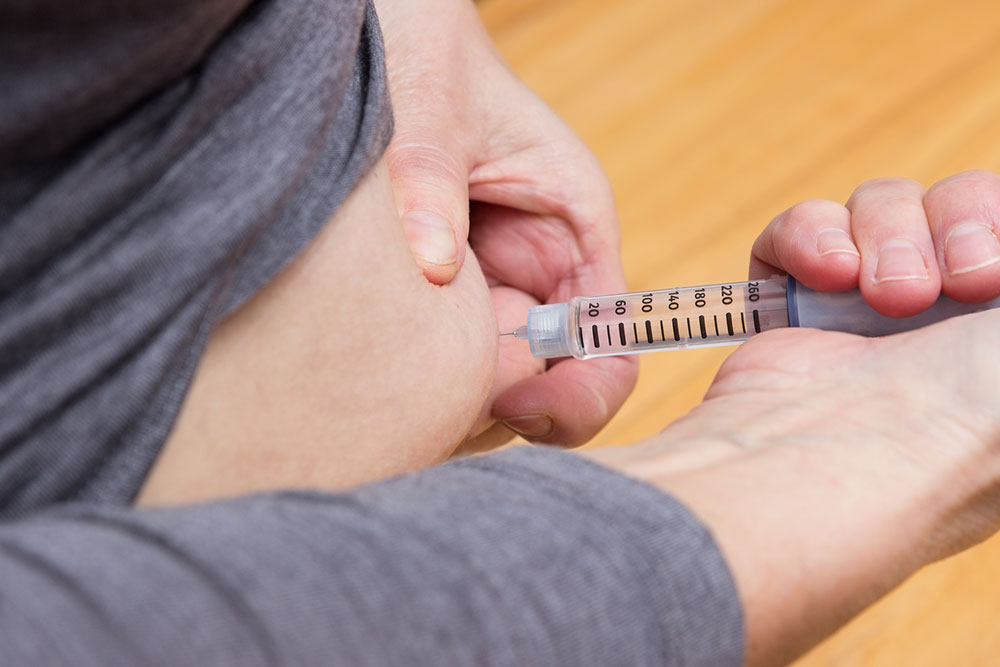Effective Strategies for Managing Diabetic Nerve Pain and Neuropathy
Diabetic nerve pain is a common complication that affects many patients. This comprehensive guide explores effective strategies including medication management, lifestyle modifications, and physical therapies to ease symptoms, slow progression, and improve quality of life. Empower yourself with knowledge to better manage diabetic neuropathy through a holistic approach involving blood sugar control, healthy living, and professional care.

Effective Strategies for Managing Diabetic Nerve Pain and Neuropathy
Diabetes is a complex and chronic condition that, when not properly managed, can lead to serious complications affecting various parts of the body. One of the most common and challenging complications is diabetic neuropathy, a form of nerve damage that results from persistent high blood sugar levels. This condition can significantly affect the quality of life, causing a range of sensations from numbness and tingling to burning and stabbing pains, particularly in the hands and feet. Understanding how to effectively manage diabetic nerve pain is crucial for patients to prevent further damage and improve daily functioning.
Managing diabetic neuropathy requires a comprehensive approach centered around blood sugar control, lifestyle modifications, and targeted treatments. Proper management can slow the progression of nerve damage, alleviate uncomfortable symptoms, and enhance overall well-being. In this detailed guide, we delve into the factors contributing to diabetic nerve damage and outline proven strategies to combat nerve pain effectively.
Understanding the Root Causes of Diabetic Nerve Damage
Diabetic neuropathy develops due to a combination of metabolic and vascular factors caused by chronic hyperglycemia. The persistent elevation of blood sugar damages nerve fibers and their blood supply, leading to degeneration. Several health issues can further compound nerve damage, including hypertension, obesity, and abnormal cholesterol levels.
Hypertension: High blood pressure damages small blood vessels that supply nerves, decreasing oxygen and nutrient flow, which accelerates nerve fiber deterioration and worsens pain and weakness.
Obesity and Elevated Triglycerides: Excess weight and high triglyceride levels increase inflammation and oxidative stress, making nerves more vulnerable to damage in diabetic patients.
Low HDL Cholesterol: Reduced levels of the beneficial HDL cholesterol, coupled with elevated LDL cholesterol, contribute to blockages in blood flow and promote nerve injury, thereby intensifying neuropathic symptoms.
Effective Methods to Control and Alleviate Diabetic Nerve Pain
While diabetic nerve damage is often permanent, various strategies can be employed to manage symptoms, slow progression, and improve the patient's quality of life. Central to these strategies is maintaining tight blood sugar control through a combination of diet, exercise, and medication. Additionally, addressing lifestyle factors such as smoking cessation, moderation of alcohol intake, and weight management are vital components of treatment.
Below are some of the most effective approaches to managing diabetic neuropathy:
1. Medication-Based Pain Relief
Over-the-counter NSAIDs and Painkillers: Non-steroidal anti-inflammatory drugs (NSAIDs) like ibuprofen and acetaminophen can offer temporary pain relief. However, they should be used judiciously under healthcare supervision due to potential side effects, especially with long-term use.
Antidepressants: Certain antidepressants, such as tricyclic antidepressants and SNRIs (Serotonin-Norepinephrine Reuptake Inhibitors), can alter pain perception by affecting nerve signaling pathways. These medications require careful medical oversight due to possible adverse effects.
Opioid Medications: Reserved for severe neuropathic pain, opioids can be effective but pose addiction risks. Their use must be supervised strictly by healthcare providers, considering potential dependency issues.
Anti-seizure Drugs: Medications initially developed for epilepsy, such as gabapentin and pregabalin, have proven effective in reducing nerve pain. Side effects may include drowsiness or swelling, so medical guidance is essential.
2. Lifestyle Modifications
Blood Sugar Management: The cornerstone of neuropathy management is maintaining blood glucose levels within target ranges through personalized diet plans, regular physical activity, and appropriate medication adherence.
Healthy Diet: Emphasize a balanced diet rich in whole grains, lean proteins, healthy fats, and plenty of vegetables. Limiting processed foods and sugars helps stabilize blood sugar levels and reduces inflammation.
Regular Exercise: Low-impact activities such as swimming, walking, or cycling increase circulation and improve nerve health. Always consult a healthcare professional to develop a safe exercise routine tailored to your condition.
Lifestyle Changes: Quitting smoking and moderating alcohol consumption can significantly reduce nerve damage risk. Maintaining a healthy weight alleviates stress on nerves and supports overall health.
3. Physical and Topical Therapies
Physical Therapy: Guided physiotherapy sessions can help strengthen muscles, improve balance, and reduce nerve pain. Focused exercises can also help alleviate symptoms, but must be performed under professional supervision to prevent further nerve injury.
Capsaicin Creams and Topicals: Topical applications containing capsaicin, derived from chili peppers, can temporarily block pain signals. Always conduct a patch test to check for allergies before use and follow recommended guidelines.
Complementary Therapies: Techniques such as acupuncture, biofeedback, and meditation may provide additional symptom relief and support nervous system health.
4. Holistic Support and Preventive Measures
Adopting a holistic approach that combines conventional treatments with mindful lifestyle choices enhances nerve health and prolongs the benefits of therapy. Regular check-ups, monitoring blood pressure, and lipid levels are essential for early detection and prompt intervention.
Education and awareness about neuropathy symptoms empower patients to seek timely medical attention, preventing further deterioration. Employing a multidisciplinary approach involving endocrinologists, neurologists, dietitians, and physical therapists ensures comprehensive care tailored to individual needs.
In conclusion, managing diabetic nerve pain requires persistence, a proactive attitude, and collaboration with healthcare professionals. While nerve damage may be irreversible, appropriate therapies can significantly improve quality of life by reducing pain and preventing further deterioration. Whether through medication, lifestyle changes, or physical therapy, patients can take meaningful steps toward better nerve health and overall well-being. Always consult your healthcare provider before initiating new treatments or making significant lifestyle adjustments to ensure safety and effectiveness.





